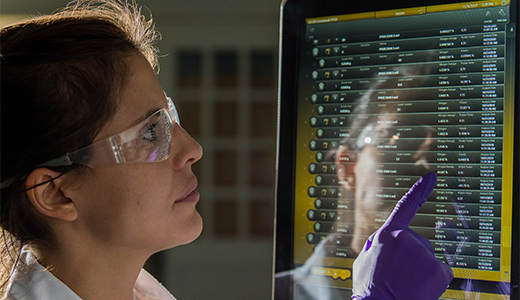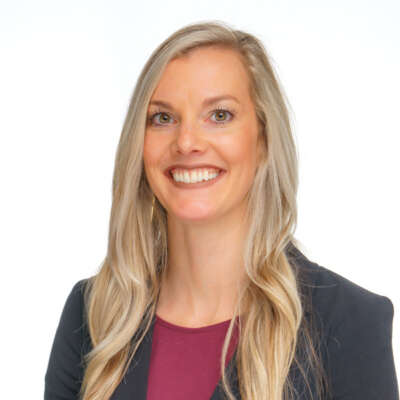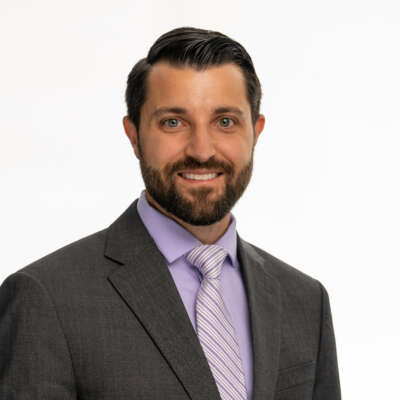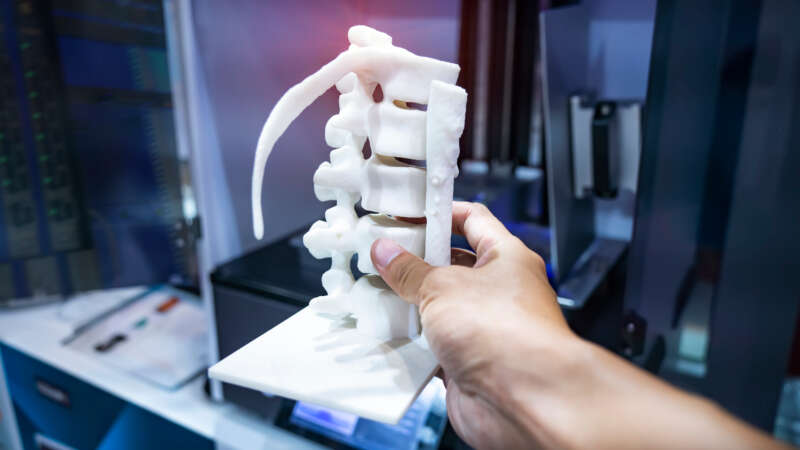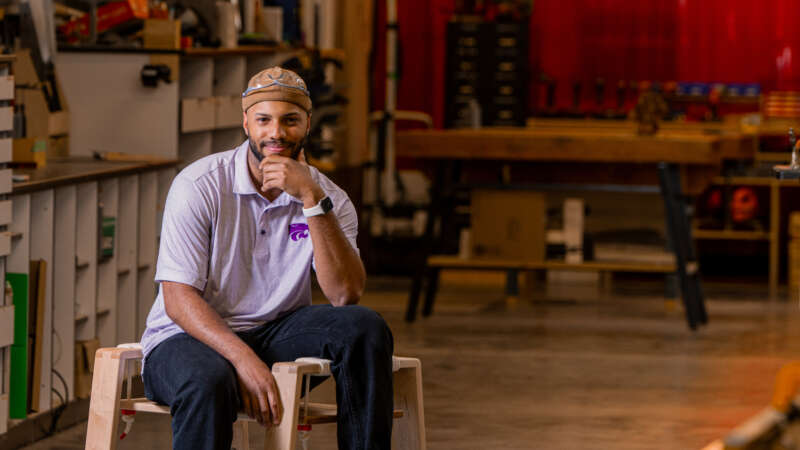University pet food program benefits the lives of companion animals near and far.
Lucre has landed a dog’s dream job — mascot for the Kansas State University Pet Food Program. This program provides pets like Lucre the opportunity to get the best nutrition possible, because we all want our furry friends to be as happy and healthy as we are.
The K-State Pet Food Program is designed to answer the call on how to get the best out of processing pet food. When the program began in 2011, the goal was to provide an academic home for the growing pet food and companion animal nutrition science within the industry. With more than 350 million pets living in over two-thirds of our homes, the K-State family decided it was time to help out those pets and build a program designed to improve their overall health.
“The program has three major elements to maintain our high standing, and those are research, teaching and outreach,” said Dr. Greg Aldrich, research associate professor and pet food program coordinator.
The first element: Research. “We are looking at the effects of processing to see how the food will be affected in terms of safety, shelf life and nutrition,” Aldrich said. “The idea is that we are going to manufacture pet foods under standard production techniques and evaluate whether the nourishment that we are trying to put into the product comes through the product by the end of the process.”
This program also draws talent from many areas within the College of Agriculture such as grain science, agricultural economics, animal science, and food science. Engineering and veterinary medicine faculty and students also collaborate with the pet food program, along with foods, nutrition, dietetics and health in the College of Health and Human Sciences. With all of these programs meshing together toward the perfect product, the second element to the mixture is vital to the program’s ongoing success.
The second element: Teaching. “We have designed a pet food minor that is intended for non-majors and we have an option within feed science and management for those students that want a degree focus in this area. Students can opt in to a number of courses so they can be more prepared when they go into the pet food industry,” Aldrich said.
“The biggest thing we need in this program are students. Kansas has declining enrollment numbers for students of college age, yet the industry is asking us for more and more young people to come work for their companies,” Aldrich said. “Send your best and brightest, your daughters and sons; they can have a career that is rewarding, they can have a good salary, and they can support the nutrition of man’s best friend.”
The third and final element to the pet food program: Outreach. “Part of the university mission as a land-grant institution is outreach. We do a lot of work with industry partners to share our research with companies across the country and work with them to show how our research can help their company,” Aldrich said.
The pet food industry is pretty substantial in the state of Kansas. It is the state’s fourth largest export of manufactured goods and employs in excess of 30,000 people in the state. Nationally, the U.S. is the largest market in the world for pet food, a $33 billion business annually.
Since K-State has a long-standing history in the animal food and nutrition research area, it was easy for the program to hit the ground running with their research and expertise. This team explores many solutions to industry problems, such as food processing and nutritional challenges.
“We are one of a kind. There are other programs and other universities that focus on nutrition through their vet colleges. I believe we are the only one that is affiliated with the grain science and feed management side of the coin,” Aldrich said. “We are focused on the food and not just the animal. I want to give our students the knowledge to take the raw agricultural commodities, make a product and see how it affects the animal and the pet owner today.”
With a group of undergraduate and graduate students helping him, Aldrich can see substantial results for the program on the horizon, and so can the students. “Dr. Aldrich is a great mentor and has always taught us discipline, a strong work ethic, and he has also put a lot of effort into making the program grow. I think that was essential,” said graduate student Isabella Corsato Alvarenga. “We always participate at conferences, volunteer in the department, and communicate research from our program at the Pet Food Forum. That all makes a good impression. Our program has a huge incentive from the industry.”
This program and its impact would not be possible without the help of donors. “We have been very fortunate as we have built this program to have contributions from some alumni and industry partners,” Aldrich said. “This has allowed the department and the College of Agriculture to support salaries, allowed the program to get up and running, and we have secured a number of scholarships for undergraduate students. We have been awarded scholarships to be able to pay stipends for some of our graduate students, too.”
With more funding and more students, Aldrich and his team could create an even bigger impact for the K-State community and the pet food industry in total. “At the end of the day I want to mirror what the industry is using in their shops so I can train my students on relevant and modern equipment, so they are ready to go to work for those companies,” Aldrich said. “When we are advancing our products out of our research and lab equipment, I want to make sure it is relevant to current producers. We have need for equipment in the lab, and I would love to sponsor more graduate students as well.”
As for Lucre, he will stick to being the mascot, certified taste tester, and resident purple-clad ambassador for the program. “We are all about the companion animal, and Lucre is proof of that. He is a great ambassador for the program, especially if you have our treats in your hand, and you are willing to share.”

To support the Pet Food Program at K-State, contact Kerry Wefald at kerryw@ksufoundation.org or 785-775-2090.
